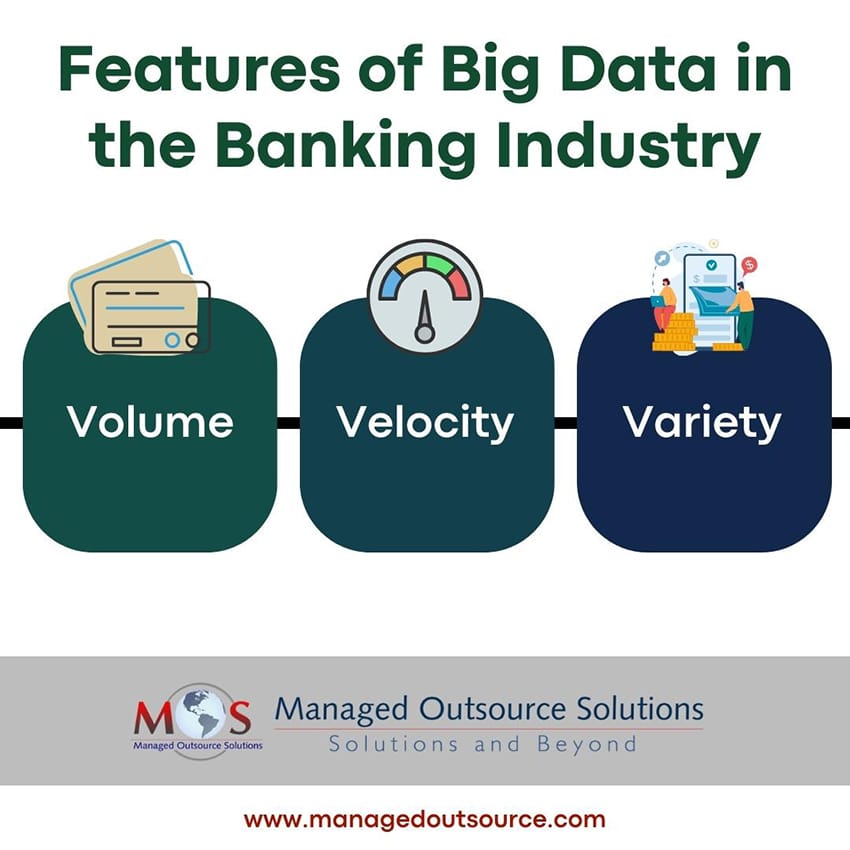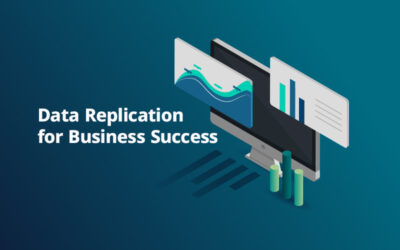Business organizations have huge volumes of data and they need to use efficient methods to turn their data into usable, digitized information. Big Data includes both structured and unstructured information. According to Gartner, big data refers to information assets characterized by high volume, high velocity, and high variety. This has fuelled the demand for data entry services and other forms of information processing to enhance insights and facilitate effective decision-making.
Big data has emerged as a significant resource across various industries. It provides insights into consumer preferences, spending patterns, and market trends. Big data enables businesses to make informed decisions based on data, enhancing strategies, products/services, and competitiveness. With big data, businesses can optimize processes, allocate resources efficiently, and streamline workflows to minimize costs.
Big data is transforming the banking and financial sector in many ways, helping banks make informed decisions, improve the customer experience, and much more. Banks leverage data analytics to make sense of the large volumes of information they collect. Advanced techniques are to process and analyze the vast, diverse, and rapidly generated data to extract valuable insights for improving customer experiences, optimizing operations, managing risks, and ensuring regulatory compliance.
Features of Big Data in the Banking and Finance Sector
Big data in banking refers to large, diverse (structured and unstructured) and complex datasets, which includes customer transaction records, interactions, account information, historical data, financial market data, social media, and more. In banking, big data is characterized by volume, velocity and variety.

- Volume: The extremely large datasets in banking such as transaction records, account information, historical data, and more, make it extremely challenging for traditional database systems to manage and analyze it efficiently.
- Velocity: As financial transactions occur at high speed, data is generated at a rapid pace Big data analytic systems must process the information in real-time to provide timely insights and support quick decision-making.
- Variety: The third challenge relates to variety of banking and finance sector data. As it comes in diverse formats, including structured data (like databases), semi-structured data (like XML files), and unstructured data (like social media posts), it requires flexible storage and processing capabilities.
The complex nature of big data in banking has made data analytics extremely critical. By applying advanced techniques, banks can leverage insights derived from vast and diverse datasets to enhance decision-making, competitiveness, and operational efficiency.
How Big Data Empowers the Financial Sector
Big data has revolutionized banking operations in various ways:
- Supports customer service improvement: Big data enhances customer service by providing a comprehensive understanding of customer preferences and motivations. A central data hub combines various customer interactions, such as personal data, transaction history, and browsing history. Analysis of big data from sources like emails, telephone calls, and social media helps in tailoring services and improving customer satisfaction.
- Enables delivery of personalized solutions: Monitoring customer spending habits and social media accounts enables banks to target customers with personalized offers. This is especially relevant for millennials who seek more personalized interactions with their service providers. Big data also enables banks to provide customers with customized investment advice based on clear and insightful analyses.
- Automates manual processes: Big data plays a significant role in automating manual processes and streamlining workflow within banks. Applying automation to routine tasks such as data entry, verification, and processing reduces the need for manual intervention. Big data analytics helps automate customer onboarding processes. Applying analytics enables banks to identify repetitive tasks and bottlenecks in workflows. In essence, big data serves as a catalyst for reducing manual efforts and fostering a more streamlined workflow across diverse aspects of banking operations.. For instance, companies like Landesbank Berlin have applied application integration to process 2TB of data daily, implement 1,000 interfaces, and use just one process for all information logistics and interfacing.
- Improves risk management: Big data empowers banks with the tools to proactively identify, assess, and mitigate risks across various dimensions, including fraud, credit, operational, and market risks. For instance, it promotes better credit risk management by providing a more holistic view of borrower behavior. By analyzing diverse data points such as transaction history, payment patterns, and external factors, banks can make a more accurate assessment of creditworthiness. This results in more robust risk management practices and improves the ability to navigate the complex financial landscape.
- Provides stock market insights in real time: Big data empowers banks with the ability to process, analyze, and act upon vast amounts of real-time stock market data. Processing large volumes of real-time market data, including stock prices, trade volumes, and market trends provides banks with up-to-the-minute insights, facilitating timely decision-making in the dynamic stock market environment. Big data also enables forecasting market trends, allowing banks to anticipate market shifts, identify investment opportunities, and manage risks proactively.
- Monitoring security and fraud activities: Big data facilitates monitoring of customers’ purchases, enabling the identification of abnormal spending patterns. Systems equipped with big data can analyze fraud signals in real time using machine learning, accurately predicting illegitimate users or transactions. It offers a global perspective on different factors related to financial risk, aiding in the identification and prevention of fraudulent activities.
- Improves financial reporting: Advanced data processing significantly improves the accuracy of financial reporting. Integrating diverse data sources, including transaction records, customer interactions, and market data, ensures that financial reports are based on a comprehensive and holistic view of the bank’s operations. Banks can provide precise and reliable financial information, enhancing transparency for stakeholders. Utilizing predictive analytics models enables banks to forecast financial trends and outcomes, contributing to informed financial reporting.
- Competitive edge: Processing big data provides banks with a substantial competitive edge. Insights derived from big data analytics empower decision-makers to make informed choices. These insights allow them to respond to dynamic market conditions, providing agility in response to changing economic factors and industry trends. Banks can also optimize resource allocation and introduce innovative financial products and services based on insights from the data. By providing customer service that caters to the preferences and requirements of different audiences, they can stay ahead in a competitive landscape
- Regulatory compliance: By ensuring accurate and transparent reporting, processing big data helps financial institutions to meet regulatory compliance requirements, and adhere to legal frameworks, and industry standards. For instance, financial institutions need to comply with stringent regulations to prevent money laundering. Applying advanced techniques can help identify patterns and anomalies within large volumes of data from various sources. This can help banks detect unusual transaction patterns that might indicate potential money laundering activities.
Processing vast, diverse, and rapidly generated big data enables the banking and finance sector to extract valuable insights. Business process outsourcing solutions such as data entry, data cleansing, data mining, and data processing data play a crucial role in preparing big data for analytics. Big data analytics is most effective when it starts with a foundation of clean, well-organized, and accurately entered data. By partnering with a reliable BPO company, financial institutions can ensure that the data used for analytics is reliable and accurate.
Get ready to harness the power of big data with quality data processing solutions.




